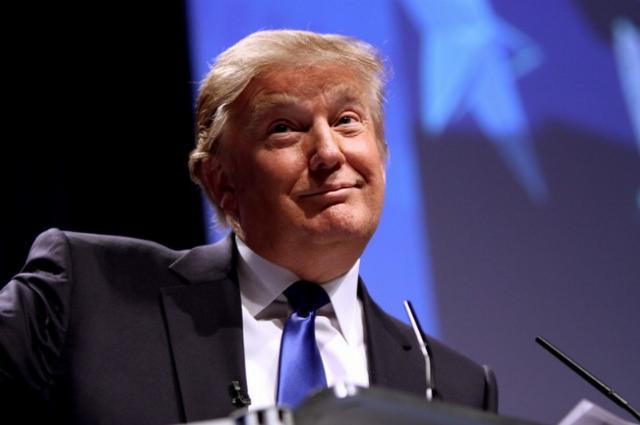Trump is pure Chicago economics
In his recent interview with Joe Rogan, President Trump explained why tariffs are such an effective market-based economic tool. His thinking is pure “Chicago School” economics, by which I mean that it is based on markets and select incentives rather than using government regulations and controls.
Some will say that tariffs are themselves government controls, but they are, rather, part of reciprocal trade terms, while raising billions in revenue and most of all motivating companies to operate here, hire American workers, and develop the domestic economy.
Trump’s market-based instincts are straight from University of Chicago’s Nobel economist, Milton Friedman. Friedman didn’t care for tariffs or quotas in general, but his view of free trade was specific and didn’t extend to foreign industrial theft, product-dumping by foreign state subsidies, or letting American manufacturing become increasingly outsourced. Those things work against actual free trade. The political left doesn’t like to admit that Trump’s economics is the economics of behavior and incentives, and from one of the most celebrated and respected academic departments in the world. Indeed, his former chief economist of the Council of Economic Advisers was Chicago economics professor Casey B. Mulligan.
By contrast, it is difficult or impossible to discern a particular theory, school, or concept of economics by Harris-Walz. They talk about raising worker taxes, putting government controls on wages and prices, penalizing corporate profits, restricting energy output, and implementing endless new rules. This is a theory of stagflation, while resembling Latin American authoritarian governments from the 1970s. It is a conceit of government economic control rather than trusting people, markets, and entrepreneurs.
This is especially interesting, because one Latin American country in particular, Chile, became famous for reforming its lethargic, overburdened state economy by hiring what became known as “the Chicago Boys.” This was a group of reform-minded economists who were trained at the University of Chicago by Milton Friedman and others. Their economic strategy relied on the private sector and markets. It is a story worth reading about, because in some troubling ways, the U.S. economy has been put in the same position by the Biden-Harris administration.
The best example that Trump discussed with Rogan, outside Detroit and the automotive sector, which is threatened by Chinese auto plants in Mexico, involved the semiconductor industry. He reminded viewers that Taiwan literally stole this U.S. technology, and it makes nearly all our semiconductors (while asking us to defend it from China, for free).
In answering Rogan’s question about how to get this technology back on U.S. soil, he showed how street-smart he is economically — but more, he showed how he instinctively relies on the economic tools of markets, combined with some “nudging” by smartly using tariffs, in order to get foreign nations to stop dumping products on our markets. Good trade deals also make better trade partners and improve the quality of international relations because they are based on more mutually balanced interests. That makes Trump a president of smart international engagement, not isolation.
Trump’s policy of lowering corporate tax rates, relieving consumers and workers of excess taxes, and introducing tariffs as a way to motivate companies to operate here is not only pure Chicago-school economics, but a proven method of turning around stagnant domestic economies.
No country has ever succeeded economically and competitively through a government-run economy. Even China figured that out.
This creates an election choice between a Trump “Chicago” entrepreneurial market model and a Harris top-down cult of government regulation, corruption, and waste.
Trump’s instincts and growing appeal to all voters resemble Ronald Reagan’s. Reagan won re-election in a landslide victory, with 525 electoral votes, 49 states, and 58.8% of the popular vote. Trump’s economic message of true free markets, combined with American industrial priorities, may do the same.
Matthew G. Andersson is a venture founder and former CEO. He has been featured in the Wall Street Journal, the New York Times, the Financial Times, the Washington Post, the National Academy of Sciences, and the 2001 Pulitzer Prize report by the Chicago Tribune. He received the Silver Anvil award from the Public Relations Society of America and has testified to the U.S. Senate. He is a graduate of University of Chicago Booth School of Business, and the University of Texas at Austin where he worked with economist and White House national security advisor W.W. Rostow at the LBJ School of Public Affairs.

Image: Gage Skidmore via Flickr, CC BY-SA 2.0.





